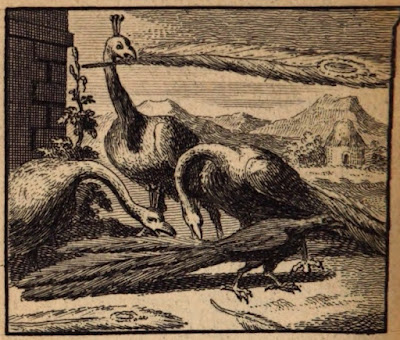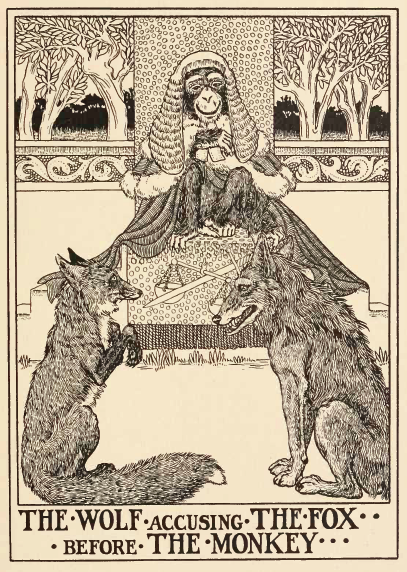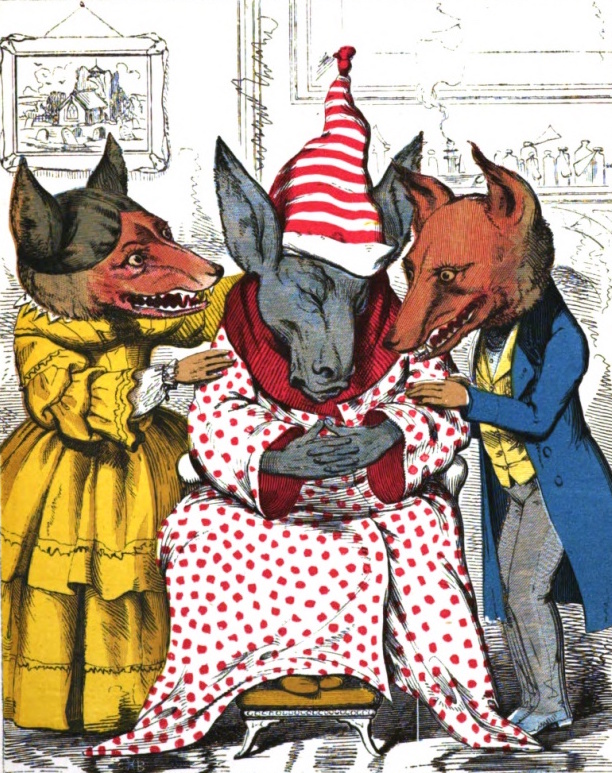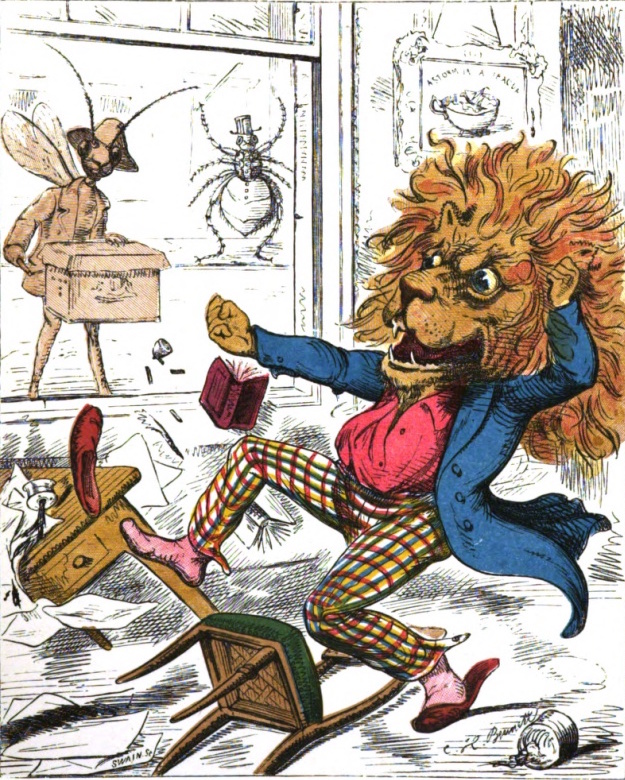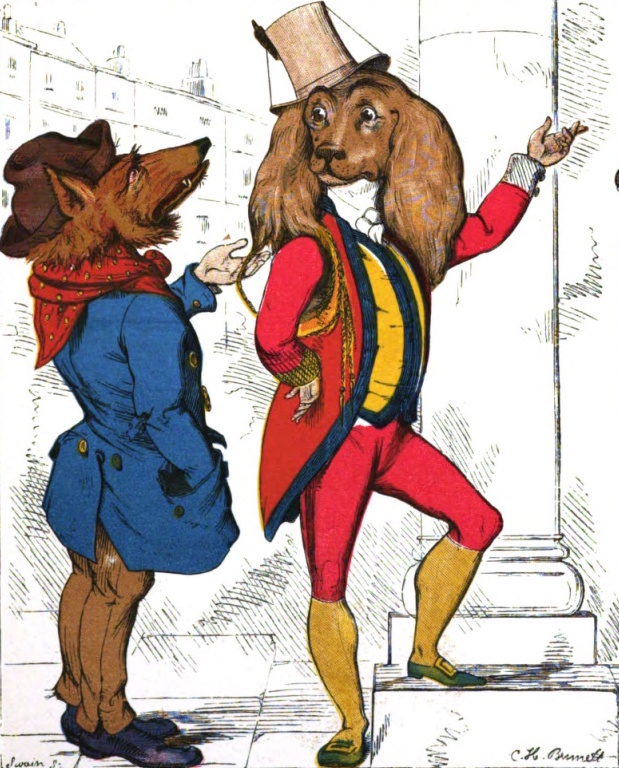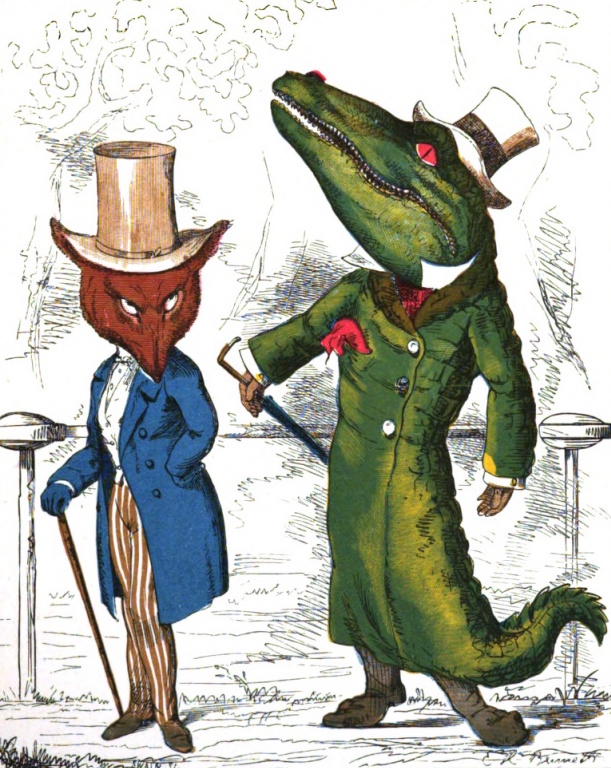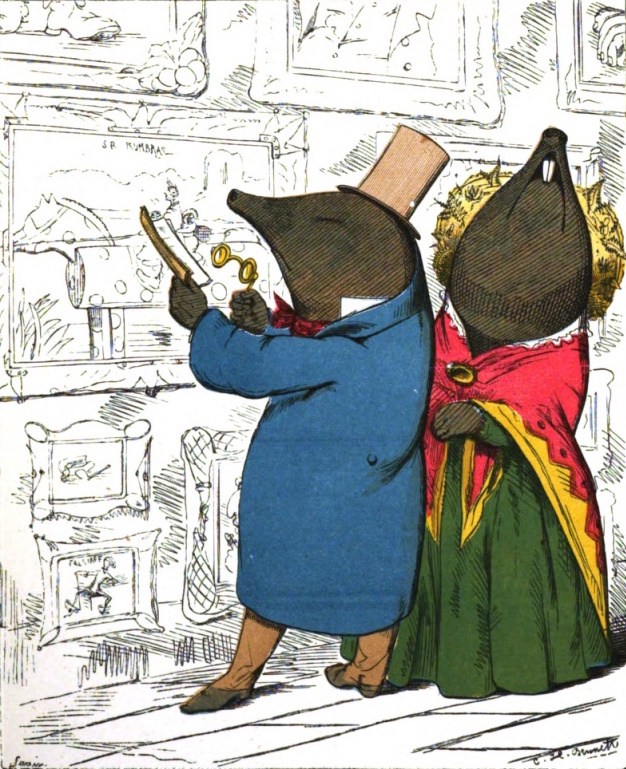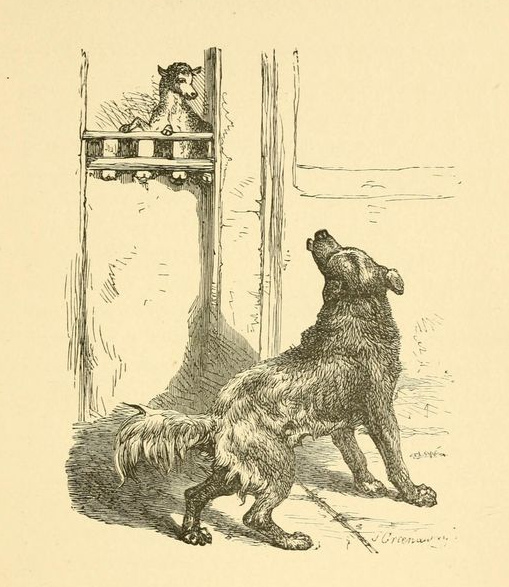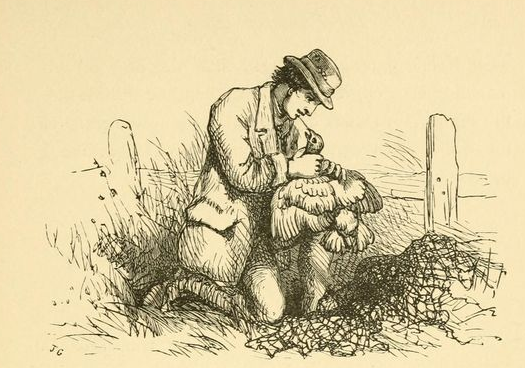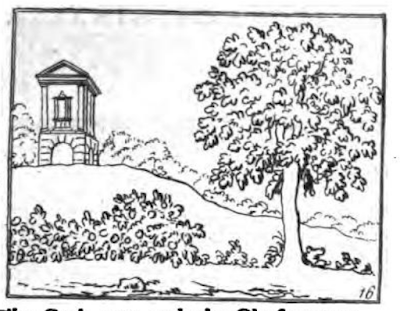The Mole Rebuked.
When a Mole that was a Well-wisher to the Mathematicks, and particularly to Geography, brought amongst an Assembly of Beasts a large Map, wherein, she said, she had made a most accurate Description of all the Provinces and Towns of Greece; she entreated them to accept that Work, which for the general good of the whole Republick of Beasts, she had undertaken: And Apologizing for her self, added, She hoped they would please to look favourably on it, and pass by what errours might possibly have been committed by her in so great an undertaking, in regard she wanted her Eye-sight, as they were all sensible.
To whom the Fox is reported to have said, Since it is so, why had you not still continued at your Digging Trade, which is most proper for you, and then you would have needed no Apology?
The Worm and the Fox.
A Contemptible Worm that pretended to Physick, appearing out of the Earth in a great Assembly of other Creatures, boasted on this manner; I, Noble Auditors, by my long Study and Search into the Secrets of Nature, and by the great knowledge I have acquired in my Travels into the Subterranean Parts of the World, as well as here above, do understand the true Vertues of Minerals, Roots and Stones; as also of all Herbs, Plants and Flowers, so that I am able by my Catholick Medicine, which I prepare according to Art, to Cure all Diseases, Maims, and Imperfections whatsoever. In a word, I may without Vanity say I should be sorry to be thought of less Skill than the Famed Aesculapius himself. Whosoever therefore would reap the benefit of my Labours, let him make hast hither, before I leave this place, to make some other Country happy by my Practice therein.
To the boasting Harangue of this Vain-glorious Quack-salver, the Fox with great attention listened, and it being finished, he looking on him with contempt, made this Answer: Which way, said he, thou Ignorant Emperick, wilt thou be able to do these Wonders to others, who art thy self both Blind and Lame, and canst supply neither one nor other of these thy own Defects?
The Wolves and the Sheep.
After a long War between the Wolves and Sheep, they made a Solemn Truce for a Term of years, and gave Hostages on both sides for the keeping it inviolable. The Wolves sent their Young ones on their parts, and the Sheep, in exchange, delivered into their Custody their Dogs, who were to remain with them till the Expiration of the Truce.
But the young Wolves being separated from their Damms, began to howl and cry, which the old Wolves hearing, took thereupon an occasion most perfidiously to break the Truce, yet pretending the Sheep were the Aggressors by their ill usage of the Hostages in their hands, and then falling on the innocent Sheep, committed all manner of Hostilities and Depredations amongst them. For they, in this Distress, wanting the Dogs, who had ever been their faithful Guards to defend their several Flocks, were in a short time all miserably destroyed by the Wolves, their inveterate Enemies.
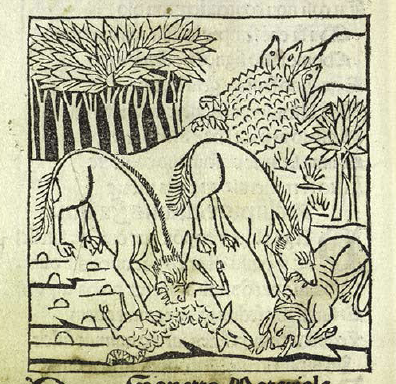
The Covetous Man and his Apples.
Many fair Apple-trees had a Covetous wretch in his Orchard, well hung with excellent Fruit, of which he would allow himself none but the Fallings: Which his Son observing, who was a liberal youth, He, in his Fathers presence, having invited some of his Companions into the Orchard, on purpose to expose his Fathers Avarice; Pray, said he to them, gather what Fruit you please, but meddle not with any of that which is blown down on the ground, for that my Father reserves for his own eating.
The Wolf, the Fox and the Apes.
A Wolf almost famished after a three days fasting, met in his progress up and down the Woods a Fox, whom seeing so fat and sleek, he admired, asking him how in such terrible weather, being the depth of Winter, he could find such plenty of Food to keep him in so good plight.
The Fox pointing towards an Apes Cave, Thither, said he, am I often invited, and there always welcom, when I fail of good success in my hunting for Prey. And saying this, he offered the Wolf some Fragments of his Meat brought from thence, which the Wolf soon devoured; but they only serving to whet his Appetite, in order to a better Meal, he begged the Fox of all Loves, to tell him by what means he might insinuate himself in∣to the favour of this Ape?
That, answered the Fox, requires no great Art to do, if you can but frame your self to Lying. He thinking this no difficult matter, ran eagerly to the Den, where he was no sooner entred, but his Nose being Saluted with a very unsavory smell. O insufferable, cryed he, What a stinking place is this? And looking forward, he saw the Old Ape fondly hugging her deformed Young. Here forgetting the Crafty Foxes advise, Well, said he aloud, in all my life time did I never behold such ugly Creatures as these.
And as he was going nearer to them, they all at the same moment leaping violently on him, with great fury tore him; one hanging on his Nose, another on his Neck, the rest on all sides Persecuting him, that the wretched Wolf with much difficulty got clear of them, and escaped with Life.
At his return he found the Fox, to whom he gave a full account of his reception. I do not wonder at it, said the Fox, because you speak truth at your very going in, when I so straightly charged you to lye. Do you not think I have the Senses of Smelling and Seeing, as well as your self? And yet I told her at my first visit, that I was infinitely pleased with that comfortable Odour, and sate me down, as if in some room made sweet with delightful Perfumes. Then called her Beautiful Lady, Mother of a lovely and hopeful Off-spring. Besides, I was careful all Supper-time, not unwarily to let slip from my mouth any imprudent Truth. Which method had you been as careful to have observed, you would not have been so ready to perish for Hunger as you are at this moment.




